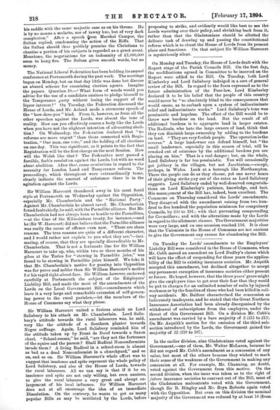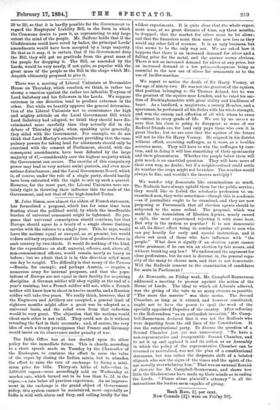In the earlier division, nine Gladstonians voted against the- Government—one
of them, Mr. Walter McLaren, because he- did not regard Mr. Cobb's amendment as a concession of any value, but most of the others because they wished to mark their sense of the weakness of the Government in making any concession at all. For example, Mr. Charming, no doubt, voted against the Government from this motive. On the second division, when the issue was taken as to the right of future insurance societies to contract out of the Bill, most of the Gladstonian malcontents voted with the Government, though Sir B. Hingley and Mr. Bryn Roberts again voted with the Opposition. But even on this division the nominal majority of the Government was reduced by at least 16 (from
-38 to 22), so that it is hardly possible for the Government to regard the Employers' Liability Bill, in the form in which the Commons desire to pass it, as representing to any large extent the mind of the people. Mr. Balfour holds that if the Gladstonians could have voted by ballot, the principal Lords' amendments would have been accepted by a large majority. Be that as it may, it is certain that if the Government drop the Bill, they will get no gratitude from the great mass of the people for dropping it. The Bill, as amended by the Lords, would be very nearly, if not quite, as popular with the great mass of the people as the Bill in the shape which Mr. Asquith ultimately proposed to give it.







































 Previous page
Previous page